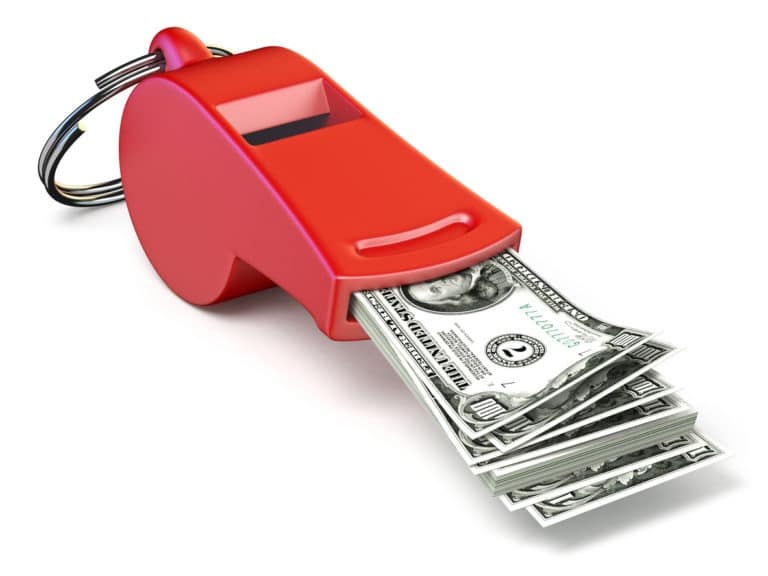Award for Contributing Original Information to Ongoing Investigation
Today the SEC awarded $3.8 million to a whistleblower that provided new information during the course of an ongoing investigation into a fraudulent scheme. According to the order announcing the award, the information that the whistleblower provided “helped the Commission halt an ongoing fraud and return millions of dollars to harmed investors.”
This award underscores that while an SEC whistleblower must provide original information to qualify for an award, a whistleblower assisting with an existing investigation can be eligible for an award. Under Rule 21F-4(c)(2), a whistleblower who voluntarily submits original information may be eligible for an award if the information significantly contributes to the success of an enforcement action. A whistleblower’s information may “significantly contribute” to an enforcement action in several ways, including if the information:
- allows the SEC to bring the enforcement action in significantly less time or with significantly less resources;
- expands the scope of the current investigation, leading to additional successful claims; or
- allows the SEC to bring claims against additional parties.
Since 2012, the SEC has issued more than $505 million in awards to whistleblowers. The largest SEC whistleblower awards to date are $50 million, $50 million and $39 million.
Tenth Anniversary of Dodd-Frank Act SEC Whistleblower Reward Program
This month marks the tenth anniversary of the enactment of the Dodd-Frank Act, which established whistleblower reward programs at the SEC and CFTC. The purpose of these whistleblower reward programs is to encourage whistleblowers to provide the SEC and CFTC with information that leads to successful enforcement actions. In particular, Congress sought to “motivate those with inside knowledge to come forward and assist the Government to identify and prosecute persons who have violated securities laws and recover money for victims of financial fraud.” S. Rep. No. 111-176, at 110 (2010).
While these programs face several challenges, including insufficient resources, they have been successful in protecting investors and rooting out fraud. Since the beginning of the SEC whistleblower program, the SEC has ordered more than $2.5 billion in financial remedies based on whistleblower information, including more than $1.4 billion in disgorgement and prejudgment interest, of which almost $750 million has been returned or is scheduled to be returned to harmed investors. See our recent article in Going Concern: Here Are 6 Reasons Why the SEC Whistleblower Program Is Successful.
Under the program, the SEC will issue awards to whistleblowers who provide original information that leads to enforcement actions with total monetary sanctions (penalties, disgorgement, and interest) in excess of $1 million. In exchange for the valuable information, a whistleblower may receive an award of between 10% and 30% of the total monetary sanctions collected.
In determining an award percentage, the SEC considers the particular facts and circumstances of each case. For example, positive factors that may increase an award percentage include the significance of the information, the level of assistance provided by the whistleblower and the whistleblower’s attorney, and the law enforcement interests at stake. On the other hand, negative factors that may decrease an award percentage include unreasonable delay in reporting the violation to the SEC and the culpability or involvement of the whistleblower in the violation.
Qualifying for an SEC Whistleblower Award
SEC Whistleblower Process
Tips for SEC Whistleblowers
In a recent podcast episode titled Inside the World of Whistleblowers, inSecurities interviewed SEC whistleblower lawyer Matt Stock, Director of the Whistleblower Rewards Practice at Zuckerman Law. In the episode, Stock discusses:
- How SEC whistleblower lawyers assess and work up claims for whistleblowers;
- What makes a successful whistleblower;
- Who is an eligible whistleblower for an award under the SEC Whistleblower Program;
- How whistleblowers can submit tips anonymously to the SEC;
- The process of an SEC whistleblower claim;
- How SEC whistleblower lawyers can protect whistleblowers throughout the process;
- How whistleblowers can maximize their future awards;
- The success of the SEC Whistleblower Program to date; and
- Legislation and rulemaking that may impact the program going forward.
Click below to hear SEC whistleblower lawyer Matt Stock’s tips for SEC whistleblowers:









